Most people know how to write words in a meaningful way, so it stands to reason that writing fiction should be easy, right? Wrong. Writing fiction well is downright tricky, or at least writing fiction that grips the reader and sells.
Here are the 5 reasons why writing fiction is so hard:
- Fiction takes time and dedication.
- Finding your own voice is hard.
- Overcoming “page fright.”
- You need to learn your craft.
- It is hard to step aside.
Like most art forms, not many writing artists start off being brilliant. Writing fiction is difficult in many ways, but luckily most of the challenges of creating great fiction may be solved by hard work. Let’s now talk about why writing good fiction could be more difficult than you anticipated.
1. Fiction Takes Time and Dedication
Every person I meet seems to be a “wannabe writer.” They want to be a writer, but their actions don’t align with their goals.
They are bemoaning their fate that they don’t have the time to sit down and create their bestselling novel. Writing takes dedication and hours of practice before your prose can shine, and your characters gain flesh enough to climb into a reader’s hearts.
Iconic writers such as Hemmingway and Steinbeck spent grueling hours at their work, honing their craft and finding their voices. You can devour every book on the writing craft and assimilate an encyclopedia of plot development settings and characterization.
You can devour the classics until you can speak Dickens and Burroughs.
But until you put pen to paper and write, fail and write, fail and write some more, you aren’t going to realize the dream of your very own novel.
2. Finding Your Own Voice Is Hard
Behind every fledgling fiction writer is an author who inspired them to write. It’s a magical process when you first transcend your everyday world and enter the reality of a great writer’s imagination.
We all have that pivotal moment when we decide to be a magician and conjure up worlds that live on in a reader’s mind.
However, that same magic may be a curse when you are trying to find your very own voice in your own writing. Often we indulge in that most sincere form of flattery called emulation and attempt to write like our favorite authors.
The anxiety of influence is a natural occurrence, and you will find that if you mirror your mentors too closely, your work becomes enervated and listless. They have made their place, and however hard you try, you can not unseat them.
However, they have secrets in their work for you to uncover. There are lessons in the cloak and shadow of their magic if you care to look closely and reveal their backstage brilliance.
You can use these illusions to bring your fiction to life in your own way and in your own voice.
3. Overcoming “Page Fright”
You have a great idea for a fiction novel, and you can’t wait to get started. You set up your writing nook with your favorite pens and pencils, stationery, flashcards, your lucky mascot, and clear your schedule. You crack your knuckles and start to write a sentence. And delete it. Write another sentence. Pause. Repeat.
Remember you have to do the dry cleaning.
The empty page can be as daunting as a stage at Carnegie hall filled to the brim with all the people who told you you would never succeed. There’s your English teacher from 5th grade, a host of your own personal critics and in the front and center is yourself.
You are your own worst critic, and if you think your writing should be brilliant from the get-go, you will never even get off the ground. You need to put your inner critic aside and let out what Stephen King calls the “boys from the basement.”
What this statement means is that your subconscious mind is always at work, developing and creating new work. They are unseen and hard at work, but they are there doing what they’re supposed to be doing. Your job, then, is to let them do their work without your criticism.
Almost every great fiction novel starts mediocre at best and what you admire and love in a famous novel is a process of several rewrites.
4. You Need To Learn Your Craft
If you are serious about writing fiction, you need to get under the hood of the writing process and figure out the moving parts. It’s unavoidable that you need to serve your time and learn your craft for any art or mastery.
This required apprenticeship doesn’t mean you need to go to college or expensive workshops, even though this could help your cause. There are many excellent books on the writing craft that you may explore, written by successful writers with secrets to reveal.
Some of the most outstanding books from Amazon.com on the writing craft are:
- “The Elements of Style” by William Strunk, Jr. and E.B. White: Considered the bible of writing style, this book is in its fourth edition for a very good reason. The elements of style offer a wealth of techniques and concrete advice on how to polish your prose and write well in any field of written communication.
- “Consider This” by Chuck Palahniuk: Palahniuk offers an immensely engaging glimpse of the writing process and reveals many secrets of how to grip a reader and not let them go, whether they like it or not.
- “Bird by Bird” by Anne Lamott: Anne Lamott offers her years of wisdom as a writer and poet in a beautifully written work about the nature of creativity and the writing process in general.
- “On Writing” by Stephen King: This heartfelt glimpse into the life and mind of one of the most successful writers of all time is a must-read for any aspiring writer.
- “The Writer’s Journey: Mythic Structure for Writers” by Christopher Vogler: Although this book may seem a bit heavy at times, there is invaluable information on the heroes myth that underlies every story ever told.
Lastly, you can learn about the craft of writing from your favorite novels. Read the novel critically and explore how the author brought the characters to life and how the author built the bones of the story.
5. It Is Hard To Step Aside
The true art of writing is learning how to get out of your own way.
Our egos and fear of ridicule and failure can stifle our creativity to a point where we become blocked. Often we become victims of our high standards and desire to be great, and this anxiety can make writing stilted, affected, and enervated.
Hemingway has taught me so much about the art of brevity. Arguably, overwrought and flowery prose often breaks the suspension of disbelief necessary to engage a reader.
It may be possible to spot a fledgling writer by the sheer excess of affectations, excessive adjectives, and a stilted writing style.
You need to step aside from your writing and let your story flow.
Whether it was truly Faulkner or Quiller-Couch, who coined the phrase “Kill Your Darlings”, the truth of the words remains. When you become excessively involved in the process of creating “great writing,” you often do so at the expense of your readers.
Step aside and tell a great story, and don’t be afraid to fail.
Is Writing Fiction Hard? More Top Tips
We all want to write the best fiction we can. Sometimes it can really pay off to learn from writers who have gone before us, so that we don’t have to reinvent the wheel, and so that we can improve our writing as quickly as possible!
Writing fiction is hard. There are lots of things to consider in a novel, like how to write characters, how to write dialogue, how to construct a plot, how to make tension rise, how to write an antagonist, and how to work in exposition. Below we’ve collected some of the best classic fiction writing tips.
Where can I find Expert Level Writing Tips?
It’s a great idea to turn to experts for advice, as their wisdom has often come from years of study and practice. Below we’ve collected some expert level writing tips from well respected books about the art and craft of writing fiction.
Is Creative Writing Hard?
The answer is that yes, all creative writing is hard, not just fiction. The tips that are gathered below are relevant for all forms of creative writing to some extent. So make sure to think about how the lessons you learn about fiction can be applied to your screenwriting, playwriting, or poems.
Creative Writing Tips for When you Have Lost your Creative Spark
We all know that if you feel stuck in a rut that you can lose your creative spark. When you get that feeling that you have hit a wall that you cannot climb over. That is the perfect time to take a step back, and seek advice from others.
So here are five creative writing tips from legendary creative writers.
What is the Best Writing Advice from Ernest Hemingway?
“As a writer you should not judge, you should understand.”
“Then get in somebody else’s head for a change. If I bawl you out try to figure what I’m thinking about as well as how you feel about it. If Carlos curses Juan think what both their sides of it are. Don’t just think who is right. As a man things are as they should or shouldn’t be. As a man you know who is right and who is wrong. You have to make decisions and enforce them. As a writer you should not judge. You should understand.”
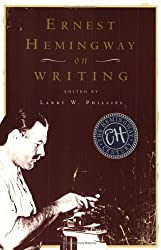
Do Editors Give Good Writing Advice?
“Place the character’s name or pronoun first in a speaker attribution.”
Self Editing for Fiction Writers by Renni Browne and Dave King
“Place the character’s name or pronoun first in a speaker attribution (Dave said). Reversing the two (said Dave), though often done, is less professional. It has a slightly old-fashioned, first-grade-teacher flavor (“Run spot, run,” said Jane). After all, ‘said he’ fell out of favor sometime during the Taft administration.”
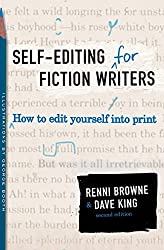
What is the Best Writing Advice by Francine Prose?
“No nonsense austerity gives authority.”
Reading Like A Writer by Francine Prose
The no nonsense austerity of a sentence’s construction gives it a kind of authority that – like Moby Dick’s first sentence, “Call me Ishmael” -makes us feel that the author is in control, an authority that draws us farther into the story.”
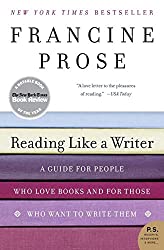
What is the Best Writing Tip by Milan Kundera?
“Tone is Crucial.“
The Art of the Novel by Milan Kundera
“From time to time I like to intervene directly as author, as myself. In that case, tone is crucial. From the very first word, my thoughts have a tone that is playful, ironic, provocative, experimental, or inquiring.
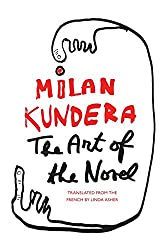
What is the Best Writing Advice by Dorothea Brande?
“Discover as early as possible one’s own tastes and excellences.”
Becoming a Writer by Dorothea Brande
The best way to escape the temptation to imitate is to discover as early as possible one’s own tastes and excellences. Here, in the sheaf of pages you have written during this period of habit-making, is priceless laboratory material for you. What, on the whole, do you write, when you set down the first things that occur to you?”
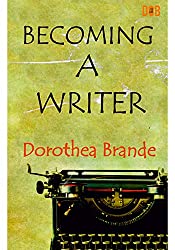
For more creative writing tips, check out these books!

